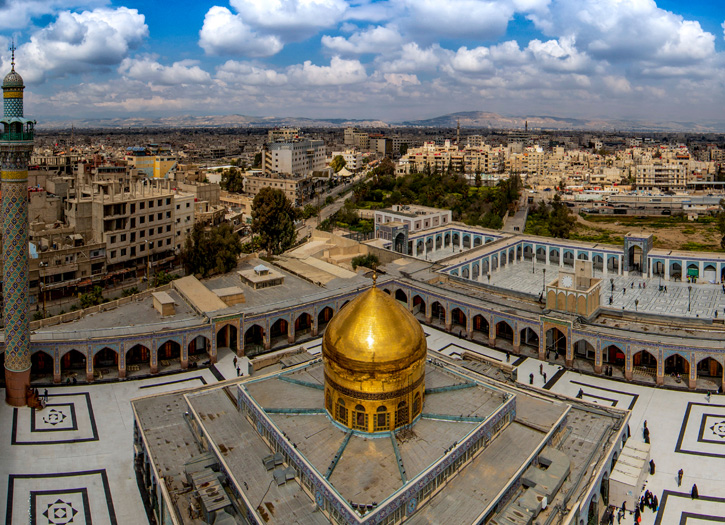The COVID-19 pandemic in Syria is part of the ongoing pandemic of coronavirus disease 2019 (COVID-19) caused by severe acute respiratory syndrome coronavirus 2 (SARS-CoV-2). The disease was confirmed to have reached Syria on 22 March 2020, when the first case was confirmed of a person who came from abroad.Syria is considered especially vulnerable to the pandemic due to the ongoing civil war and dire humanitarian situation.
Many people in Syria did not have confidence in the government’s transparency during the pandemic, accusing it of hiding the true high numbers of cases and deaths, especially in Damascus, Rif Dimashq, and Aleppo. It has been speculated that doctors in hospitals and medical facilities were being threatened by being fired or even being arrested and detained by the government forces if they said anything about the truth of what’s happening in the hospitals.It has also been rumoured that the Syrian state has even gone so far as to suggest terminating the lives of suspected COVID-19 patients.
A health official from the Jazira Region in the Autonomous Administration of North and East Syria said that there are no documented cases of COVID-19 in the province. Kurdistan TV reported from Qamishli, the largest Kurdish city in Syria, stating that 1% of the population in the city are wearing protective masks, as pharmacies and medical equipment sales centers were running low on the supply of masks. Furthermore, by 11 March, four suspected cases of COVID-19 had been reported to the Syrian Health Authority.
The Ministry of Higher Education and scientific Research decided to postpone all exams in public and private universities, including open education system examinations, the national exam and language tests for master’s degree from Saturday until 2 April.The Ministry of Endowments announced suspension of all schools, secondary, the religious institutes, University of the Levant for Islamic Science, Dar Al Aman Foundation for Orphans Care (NGO) and Sons of martyrs which are affiliated to the ministry from Saturday until 2 April.
The Cabinet suspended all forms of mass public and private transportation within provinces as of 8 pm on Monday and between provinces as of 8 pm on Tuesday, with the stipulation that ministries, union, and private production establishments provide transportation for their workers. The Cabinet also adopted the plan of the Health Ministry and other ministries for the next six months to confront the Coronavirus, which involves expanding quarantine and isolation centers, forming 19 emergency teams for epidemical detection, and setting up addition labs for diagnosing the virus in Damascus, Lattakia, and Aleppo in cooperation with the World Health Organization.
The Ministry of Health announced 14 new cases of people who had contact with known confirmed cases and one death.Local news networks said that the death reported on 6 July is of a resident of one of the neighborhoods in Damascus who visited Al-Assad university hospital multiple times after experiencing cough and fever, and was admitted to the hospital a week ago and died a few days after. And later their COVID-19 test results came back positive. Tishreen university announced that one of its employees tested positive for COVID-19, and that she was put in quarantine as well as the people that contacted with her.
During July and going through August, many individuals and organizations saw that the government has lost control over the COVID-19 situation. The Ministry of Health itself said many times that its testing capabilities are not enough,and that many asymptomatic and symptomatic cases may go unnoticed because it’s not possible to do widespread or random testing. Many local news networks and organizations said that hospitals are even refusing to admit patients with mild symptoms, and only accept those who need critical and intensive care.Some hospitals announced in early August that they have no more places for COVID-19 patients to be admitted, and asked anyone who suspects of being infected to self-quarantine at home instead of going to hospital.
The Syrian government claims that the ongoing civil war, combined with the economic situation in Syria and sanctions by western governments, limit the capacity in which adequate COVID-19 PCR tests can be conducted and prevent vital supplies for treating the pandemic from being imported.







Add Comment
You must be logged in to post a comment.